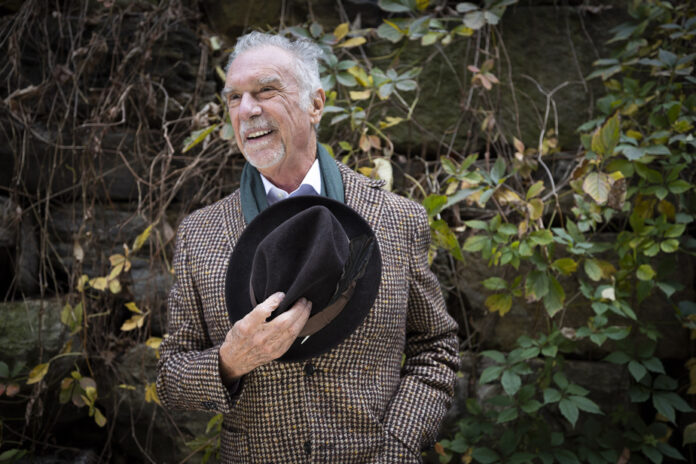For more than 50 years, he has been producing song records. He has also published five collections of poetry, three stories as well as a book of Acadian history intended for Louisiana classrooms. Now, at 73 years old, Zachary Richard adds a new string to his well-stocked bow: that of a novelist.
Indeed, the singer-songwriter published the novel Les gusts du carême last month by Éditions Libre Expression. A history graduate from Tulane University in New Orleans, Zachary Richard naturally turned to the historical fresco for his first novel.
“This book tells of a news story that happened at the end of the 19th century in my native village of Scott. Two very young men have been charged with the murder of a local merchant. The cause caused a stir at the time. There were interviews in the newspapers. This story is part of the folklore of the village. »
This news item which has always fascinated Zachary Richard served as a springboard for him to write his choral novel. The narration is often – but not always – provided by André, a 17-year-old young man who dreams of horse racing. He discovered the world with his paternal grandfather, the imposing Drozin Boudreaux. Having become rich by the arrival of the railway on his land, this man of influence tries to rise from his ashes like a phoenix, in a world in complete upheaval after the Civil War.
Did this Drozin Boudreaux actually exist? “My great-great-great-grandfather’s name was Drozin, but the rest is made up. I still wanted to tell in this novel the coming to New Orleans of famous people, including Sarah Bernhardt, who passed there 12 times. »
Why did you wait so long to move from poetry to prose? “For 30 years I filled flybooks for novel projects, but I didn’t have the discipline to continue this work on tour, which was often. When I picked up the notebook on my return, I found that I had written nothing but shit. And I put the notebook aside…”
When the pandemic hit, he took out his 12 notebooks and reread them. “And indeed, it was pretty much shit! » But the desire for the novel was intact. And he had time to be confined on his side…
So he leaned over his work table every day to add words to his mill. “You don’t write a novel as a dilettante. It requires commitment: you have to lay one brick at a time. In poetry, the encounter with the muse is instantaneous. For the novel, I didn’t work with an outline like others do. I followed the flow. I had confidence that once in the canoe, the current would carry me. »
In addition to the desire to tell a story other than through his songs, Zachary Richard wanted to showcase French-speaking Louisiana culture as experienced by his grandparents and those before them. “I wanted to show the sound and texture of this Cajun culture that I knew and which has disappeared today. »
Another interesting element of this novel planted on the losing side of the Civil War: the complex relationship between the former masters and the former slaves. “The benchmarks were down. Relations between African descendants and those from Europe were much less simplistic and one-dimensional than one might believe…”
For this first novel, Zachary Richard asked himself many questions about the language he wanted to use. Should we highlight “the exoticism of Louisiana speech” or rather favor a more international French? He chose the second option, but he slips in very local expressions here and there which remind us that we are on Cajun land. “I walked a tightrope the whole time. »
With Les gusts du carême, Zachary Richard becomes the first French-language Louisiana author to publish a novel since 1894. “The last was Sidonie de La Houssaye, who wrote serial novels in newspapers. At the beginning of the 20th century, the steamroller of American culture passed over us, notably with the adoption of the Education Act. My parents experienced a brutal linguistic assimilation…”
He is the first in 129 years to write a novel in French in Louisiana. But he is hopeful for the future. “More will follow, I’m sure. » And is he thinking of getting back to work on a second novel? “We’ll see what the muses decide. »















